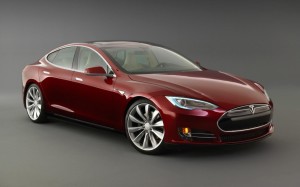The EV Drive Coalition, whose members include General Motors, Nissan, and Tesla, are fighting to preserve the federal tax credit for electric vehicles (EV). Common criticism against the tax credits typically revolve around the idea that they force low-income families to help well-to-do families purchase expensive electric vehicles like a Tesla Model X.
Admittedly, until I read the memorandum outlining a regional electric vehicle plan that outgoing Governor John Hickenlooper and seven other mountain state governors signed, this issue had always been my chief concern as well.
But forget that EV tax credits distort the market and force working families to help pay for other peoples’ electric vehicles; inequitable wealth transfer from poor to rich doesn’t seem to concern the EV champions. The real problem, according to the memorandum, is “range anxiety.” This malady is defined as “the worry on the part of a person driving an electric car that the battery will run out of power before the destination or a suitable charging point is reached.”
I had never heard of the affliction so many Tesla owners contend with on the days they choose to drive their electric vehicle. I am now aware of my ignorance and accept the real issue is actually government policies that foster and increase this affliction in those who choose to buy an electric vehicle (i.e., families and individuals making over $100,000/year).
Put yourself in the shoes of Tesla owner. Imagine the kind of stress they endure knowing so few charging stations are dispersed throughout the country. For many, it’s either drive one of their other three cars, or else, face the anxiety that comes with not knowing if a charging stat![]() ion is nearby.
ion is nearby.
Currently, there are two proposals that might that solve this affliction. The first is to simply stop subsidizing electric vehicles. But that is far too easy, and let’s be honest, few government officials think like that. The second solution, or should I say, the Democrats and Colorado’s preferred solution: implement government spending packages that focus on healing the people who willingly purchase a car with half the range of an internal combustion vehicle. Because why wouldn’t society foot the bill to relieve those suffering from a self-induced, completely avoidable mental affliction?
Since taxpayer subsidies contributed to EV owners’ fragile emotional state, it’s only fair for those same taxpayers to solve the problem by paying to build charging stations for them. Join me in standing up and fighting on behalf of those few people who tragically suffer from range anxiety.
Brit Naas is an energy researcher for the Energy and Environmental Policy Center at the Independence Institute, a free market think tank in Denver.


